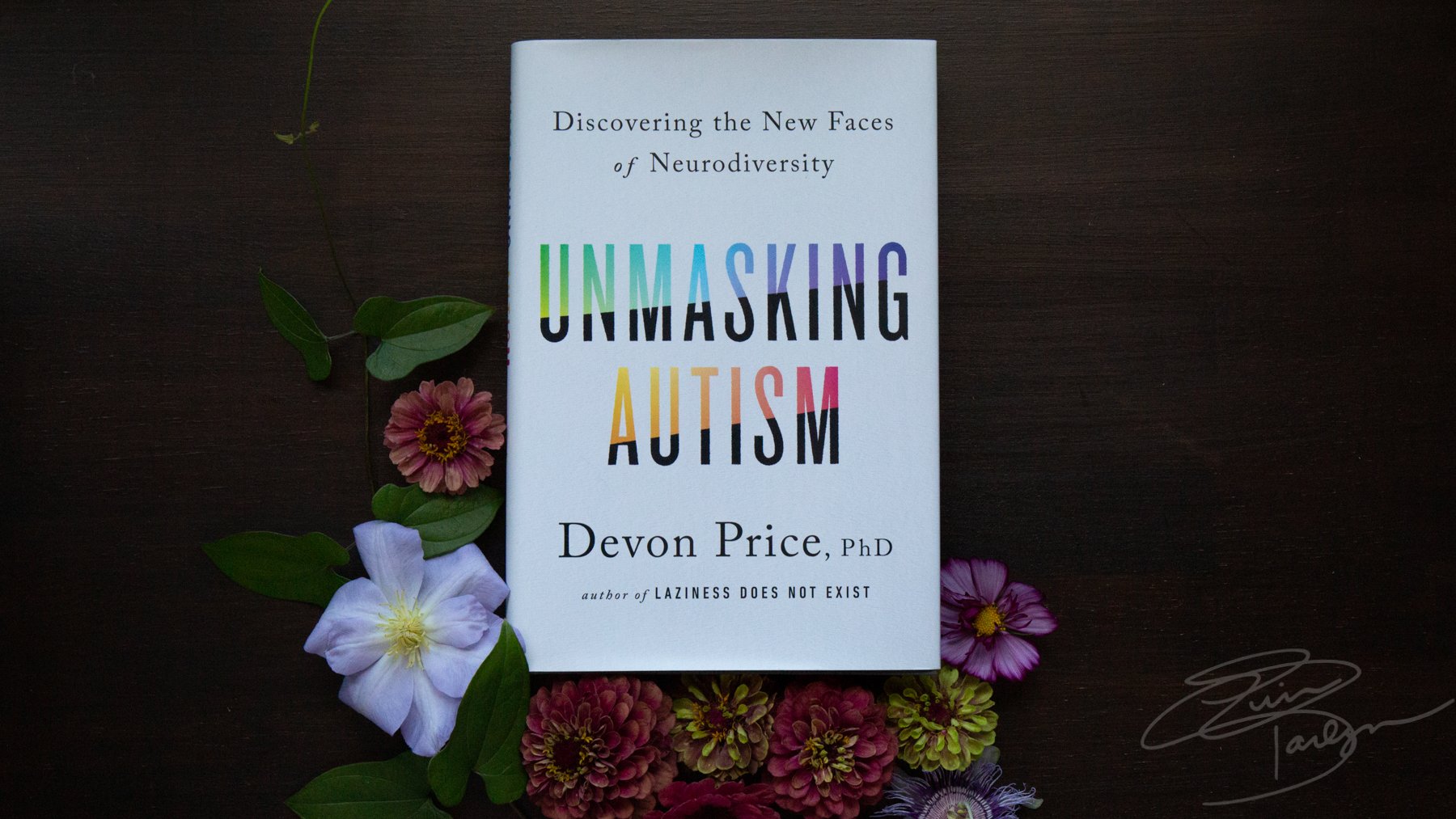Book Review: Unmasking Autism by Devon Price, PhD
Rating: 4 stars of 5
Unmasking Autism was such an eye-opening, validating read. Devon writes in an engaging, welcoming voice and begins by introducing the reader to what the spectrum of autism really looks like, particularly in people who are not young white males presenting with a very stereotypical manifestation of it. As an autistic psychologist, Devon is able to both speak from experience about his own story and to educate the reader about relevant neurotype research. We also get to hear about other autistic peoples’ stories throughout the book.
After we learn about what autism actually is, how common it is, how it manifests in different kinds of people, and what you can do if you suspect you may be autistic (including some pros and cons of which to be aware if you think you might want to seek a diagnosis), Devon dives into the topic of masking. Masking can basically be summed up, in my estimation, as presenting oneself as neurotypical so as to not draw unwanted attention to oneself, to fit in with societal expectations, to survive, etc. It is a practice that enables many autistic people, whether they realize they are autistic or not (or even whether they realize they are masking), to function in a society that is not designed to be friendly for neurodivergent people. Masking can be exhausting and many people who mask eventually reach a point at which they can no longer maintain it.
Devon discusses who the various autistic people who mask are, the different ways masking works, and the cost of masking, both for the person who masks and for the society that requires people to mask. It is a really fascinating read, and I appreciated all of the research that was mentioned throughout the book.
About halfway through, the narrative transitions away from the cost and practice of masking and shifts focus to how we can build more just, equitable societies that allow both neurodivergent and neurotypical people to unmask and show up fully as themselves. For autistic people, he also offers a framework for building a life that celebrates and integrates your neurodivergence whilst allowing you to live out your values so you can thrive. Additionally, he discusses building friendships and relationships as an autistic person, and briefly mentions autism organizations that are trustworthy sources of information. (There are several that are disreputable.)
One of my favorite thoughts that runs as a thread throughout the book is that difference is not pathology, though our current medical model wants to treat it as such. At one point, Devon shared something from academic Mike Oliver that I thought particularly relevant on this topic:
“In his writing, Oliver described disability as a political status, one that is created by the systems that surround us, not our minds and bodies.”
This idea resonated, as did the social model of disability that Devon presents in the chapter on creating a neurodiverse world. I found that last section of the book particularly inspiring as I explored that idea more thoroughly.
I rated the book with four stars instead of a full five because it contains a solid handful of editing errors and contains strong language, for which I routinely remove a star from my ratings. That said, it is an excellent read and I would definitely recommend reading it for people who either are (or suspect they are) autistic, know someone who is, or who are curious about neurodivergence and how we can all work together to make our society a more just, equitable one for everyone.
You can support this blog by purchasing your own copy of this book
through Amazon using this affiliate link.

